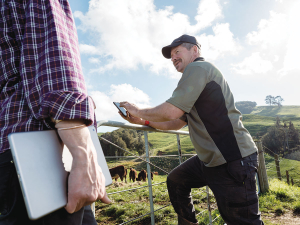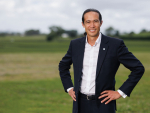Dairy farmers can easily track the performance of their replacement heifers and ensure they reach their genetic potential.
Weighing technology can help farmers to meet crucial heifer liveweights at first mating and calving boosting in-calf rates and increasing milk production, says Gallagher head of animal performance and traceability Brian Rose.
New data from LIC shows that too many farmers are not weighing their heifers when they return from grazing – and are missing out on big genetic gains as a result. LIC believes the impact on farms is huge, leading to poor heifer fertility and production. It means farmers are not maximising their return on investment from breeding the heifer and are risking her first-year production potential.
Rose says while the statistics are not ideal, there is simple technology available that can help. He says electronic identification (EID) and weighing solutions are now able to give farmers accurate information on whether their heifers are meeting the targets.
Each animal’s EID number is scanned using a portable hand-held tag reader or hands-free reader in the yards, which are connected to a compatible weigh scale to collect weights and other livestock records.
The target heifer weights and dates can be imported from MINDA, which means the farmer can see in real time if each individual heifer is on track to meet her targets. If not, it presents an opportunity to adjust management practices accordingly.



















